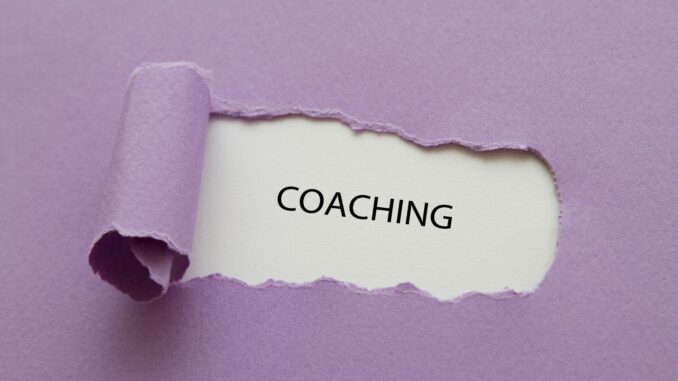
This might surprise many people, but evidence for the effectiveness of ADHD coaching is largely lacking. Even a general agreement about what an ADHD coach actually is not written in stone.
There is some limited evidence for the benefit of coaching adults with ADHD. This however depends on how you define success, and whether you think individual case studies are enough evidence for you.
We appreciate that isn’t enough. So here goes. The current medical treatments for adults with ADHD are predominantly stimulant medication (such as Ritalin) followed by psychotherapy from a trained healthcare professional. These are known to help reduce symptoms and improve many aspects of daily function and quality of life.
Many people have reported that an additional approach to success is to work with a coach, preferably one who understands the symptoms of ADHD. A coach does not have to be a health professional.
What is coaching?
‘What is coaching’ is the golden question. The evidence-based answer is that ‘coaching’ isn’t actually a thing. There is no agreed term, no formal agreed qualification and no legally required licence needed to take on paying clients.
Despite this uncharitable description, coaching is based on the idea that a person’s experience is the best place to set goals and define success. The coach, therefore, provides questions and time for a client to work on those areas. There is also a lot of evidence that coaching is an effective way to develop one’s skills. These skills can include self-awareness and setting life goals.

Geography is key.
To make things more complicated, the term can differ between countries, and even between coaches. Sometimes being a coach means being an advice-giving mentor. In other cases (more often in the UK) coaching means a less directive approach to developing a client’s skills, strengths and goals to manage change in their life.
How is ADHD coaching different?
The process itself isn’t different really. Coaching someone who is neurodivergent requires an understanding of the neurodivergent motivations and behaviours.
Some organisations (such as the ICF or EMCC) have a credible reputation for ‘accrediting’ coaches in general, but from a legal perspective, literally anyone in the world can call themselves an ADHD coach and charge clients whatever they want.
There is currently very little available evidence for coaching as a ‘measurable’ mental health support for adults with ADHD. Coaching is also not considered a treatment for ADHD in the same way as stimulant medication and psychotherapy
A lack of evidence can sometimes reflect the fact that we haven’t really started looking yet. And in fact, we’ve known for over a decade that coaching can be helpful for coping strategies for many elements of adult ADHD. These can include emotional acceptance, executive function management and task starting and restarting.
Coaching an adult with ADHD typically explores areas that have worked for the client in the past. Defining success internally as well as externally. The motivation of the client is also particularly important.
What does an ADHD coach have to know?
What is very different is the awareness and psychoeducation of the coach themselves. ADHD coaches can provide access to knowledge of evidence-based symptoms, causes and treatments for the brain science of ADHD.
A coach might be able to describe executive functions with day-to-day examples but also be familiar with co-existing conditions. They would also share the associated symptoms not in the diagnostic manual known as the DSM-V. These include issues such as RSD and emotional dysregulation, coming with self-loathing, guilt and shame. Being aware of the myths, stigma and lies that surround ADHD is also very helpful.
Familiarity with these allows the coach to respect the difficulties with the exact issues that a regular coach would take for granted. Specifically, the time-keeping, motivation, organisation, and working memory required to take responsibility for the goals set in a coaching session.

Some of the things an ADHD coach will do differently include:
· Understanding the need to interrupt and bounce around different ideas. To structure the conversation without blame.
· Working on techniques for starting and restarting tasks based on motivation.
· Identifying natural motivation and creating motivation for longer-term goals.
· The smallest thing to break a barrier. This is usually the clarification of a hidden uncertainty (who can help).
· Acknowledging past success (a ‘done’ list as well as a to-do list)
· Discussing realistic expectations (of time and activity).
Is this life coaching?
Not really, but sort of. It is particularly difficult to separate the personal from the professional with ADHD adults. This is because their professional motivation and success is far more likely to be driven by factors that are personally motivating for them. A good ADHD coach will work with a client to understand their strengths and start to plan goals and career development within the context of their personal and emotional ADHD behaviours. If the aim of the coach or the client is “not to have ADHD symptoms”, the whole exercise will likely fail.
How do I find a coach?
This is not completely simple. While it is becoming clear that coaching is an effective tool, the main element of success is the relationship between the individual coach and client. This makes ‘recommendations’ hard to give. Working via organisations such as the ICF or EMCC is only a starting point. Use this to find references, listen to people you trust and be prepared to walk away if the chemistry isn’t right for you.
Author: Alex Conner PhD.
Editor: James Brown PhD.

Leave a Reply
You must be logged in to post a comment.